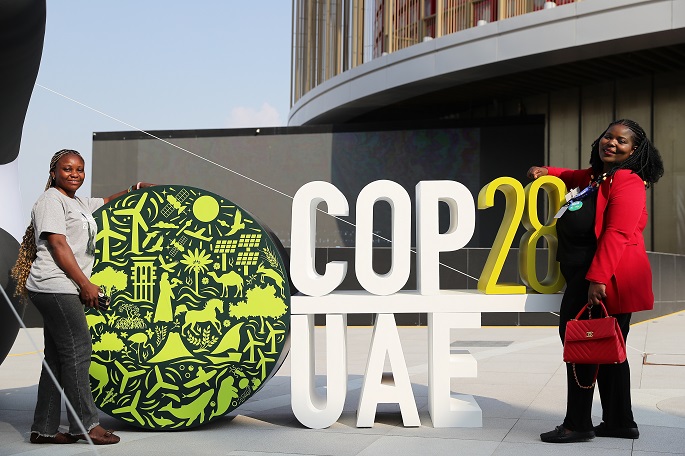Nordic business Orgs place 3 demands at COP28 negotiations
Published : 04 Dec 2023, 23:35
Business organisations of Finland, Sweden, Norway, Denmark and Iceland have expressed three expectations of the COP28 negotiations, said the Confederation of Finnish Industries' (EK) in a press release on Monday.
The demands are to initiate global trading mechanisms, set a global carbon price and support the global energy pledge.
Nordic business supports the Paris accord and the EU 2030 climate targets. They support EU’s mandate and the ‘global energy pledge’ to triple global renewable capacity and double global energy efficiency rate.
“While we support Europe’s climate change leadership, climate change is a global challenge and global cooperation is vital to solve it. The EU is committed to 2050 climate neutrality and we urge the international community to follow suit with ambitious efforts to combat climate change. International cooperation will increase the speed and cost-efficiency of the green transition, which requires massive investments. Hence, a strong future-oriented and sufficiently ambitious agreement, with all countries in cooperation and trade, is crucial for further measures and our ability to fulfill them,” said the EK in the release.
OP28 will conclude the first five-year cycle of the UN global stocktake. It is evident that we are not on track in keeping temperature rise well below 1.5 to 2.0°C of pre-industrial levels.
The objective of the next cycle must be to keep the Paris ambition. The EU will present a 2040 climate target as an obligation under the Paris Agreement during 2025 with a 2035 milestone included. The organisations support this endeavour and encourage the EU to maintain its climate leadership.
They, however, need to implement concrete, transparent and reliable transformation measures to have any hope of achieving the Paris goal and keep 1.5 °C alive.
Set global CO2 price
Market based solutions are urgently needed to set a global CO2-price and to kick-start worldwide climate action. Europe established an Emission Trading System (EU ETS) in 2005 and more than 80 pct. of emissions will be covered by it in 2030. The system has proved to be a cost-effective mechanism to decarbonise industries. Hence, they urge that the COP28 climate agreement promotes market mechanisms, building on the promising and significant progress achieved in Katowice and in Glasgow. A simple, transparent, and legitimate market-based system must come in place as quickly as possible to kick-start market dynamics.
Decarbonise our economies with tech deployment
Emissions should be gradually phased out or decarbonised globally. This can be done through reductions of emissions with measures such as energy efficiency, and deployment of alternatives to fossil energy such as scaling up renewable energy capacity, use of CCS, deploying hydrogen and power-to-x solutions.
Other than reductions, the Nordic businesses need avoidance and removals of carbon from the atmosphere, especially in the hard-to-abate sectors. All carbon removal technologies must be acknowledged and incentivised, including both natural and industrial carbon removals. Remaining and decreasing emissions, under the agreed target of well below 2 degrees, must be subject to trade on a global market and a global carbon price. It will enable flexibility and cost-efficiency, incentivize decarbonization by supporting stronger business models, and accelerate carbon management solutions and technology development. Models show that the world can meet targets at half the price, or remove twice as many emissions, with trade cooperation.
Efforts should be placed on the operationalization of the central mechanism under Article 6.4.
Further guidance on corresponding adjustments, the administrative infrastructure of the market mechanism and the rules for the supervisory body will be important. Finally in place, it will instill confidence needed to agree on systems for reporting and verification, initiating global market dynamics.


